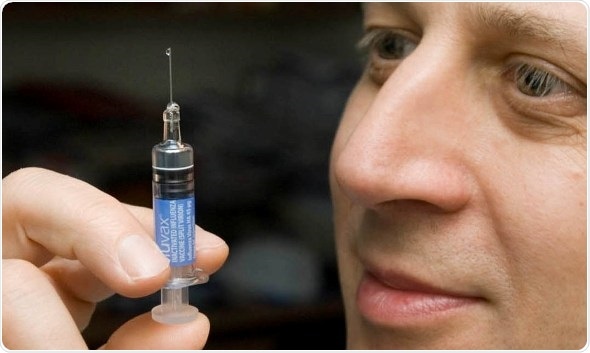
Vaxine Pty Ltd have been involved with the development of vaccines for global infectious diseases such as malaria, hepatitis, HIV and SARS.
Vaxine Pty Ltd in South Australia has developed the unique adjuvants that make vaccines easier to recognise by the body’s immune system.
Developed over several years, the company has used the patented technology to develop vaccines for seasonal and pandemic influenza, hepatitis, malaria and SARS.
Vaxine also became the first company in the world to commence human swine flu vaccine trials during the 2009 pandemic.
It recently developed a vaccine for onchocerciasis, also known as river blindness, a disease that affects about 17 million people around the world according to the World Health Organisation.
The polysaccharide adjuvant is a crucial element to the river blindness vaccine’s success and it is now being primed for cattle trials in the United States.
Scientific Director Nikolai Petrovski said one of the main problems with other contemporary adjuvants was the use of aluminium, which was not always effective for every disease.
“We offer a new alternative that is not only potentially safer because it is a sugar instead of a metal/salt with high toxicity,” he said.
“But our adjuvant also works for a lot of vaccines that wouldn’t work with aluminium. The ones that tried to create an onchocerciasis vaccine didn’t take but ours actually works.
“Our technology is a bit like melding a turbocharger to the engine and in this case makes the vaccine dramatically more powerful.”
Vaxine’s unique adjuvant makes the pathogen in the vaccine easier to recognise by the body’s adaptive immune system.
It takes a key protein from the pathogen and trains the immune system to recognise and target that specific protein faster.
Onchocerciasis is a major cause of blindness in many African countries. It is also prevalent in many South American countries.
It is partly responsible for the reduction of economic productivity in a lot of those areas, leaving vast tracts of arable land abandoned. About half a million people have been blinded by the disease.
It is spread by blackflies that breed in rivers, infecting humans and often cattle with a parasitic worm known as Onchocerca volvulus.
These parasites can cause eye inflammation, bleeding, and other complications that ultimately lead to blindness.
Professor Petrovsky, who is also Professor of Medicine at Flinders University in the South Australian capital Adelaide, said the company planned a two-pronged approach to effectively battling the disease.
“First we’re looking to vaccinate the cattle, which are a breeding ground for the parasite,” he said.
“Then the other side of this is to immunise the children so if they come in contact with the parasite it blocks the infection.”
Vaxine is funded by the US National Institutes of Health to develop polysaccharide adjuvants that have played a vital role in the development of a range of vaccines for infectious diseases, allergies, and cancers.
It is also is active on other fronts including Ebola and Zika virus research.